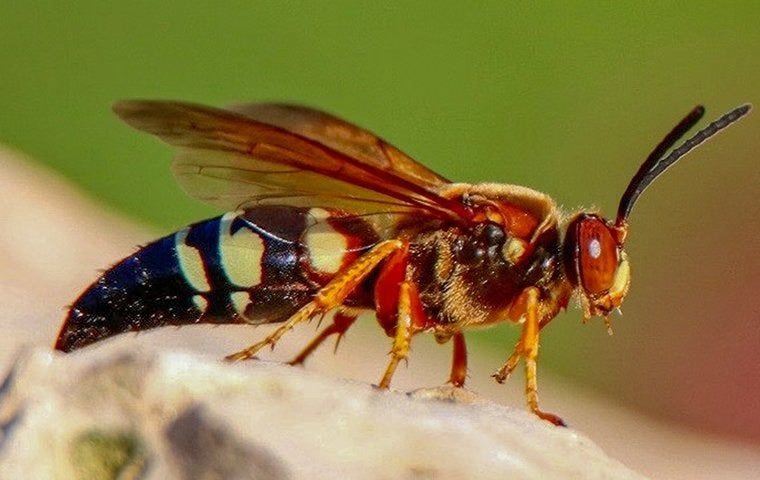
Solitary Wasps Identification & Prevention
Frequently Asked Questions about Solitary Wasps
Have questions? We are here to help. Still have questions or can't find the answer you need? Give us a call at 252-424-7966 today!

-
How can I prevent solitary wasps in the future?
Solitary wasps are not just a nuisance; they pose potential health risks. Avoid problems with solitary wasps with the help of the following wasp prevention tips.
- Place garden areas away from the outside of your home and limit the amount of flowering vegetation planted in your yard.
- Remove fallen trees, trees, stumps, and excess woodpiles from your property.
- Fill in ground holes.
- Remove standing water from your property.
- Seal spaces in the exterior walls and foundation of your home.
- Place caps on chimneys.
- Repair openings under roof eaves.
-
How do I get rid of solitary wasps?
The best way to control solitary wasps and keep them from returning is to get help from a professional. Albemarle Termite & Pest Control technicians are highly trained and dedicated to providing safe, effective, and affordable pest control services in Elizabeth City. We are a local pest control company whose number one priority is putting our customers first and exceeding expectations. Home or business owners looking to control pests once and for all should call Albemarle Termite & Pest Control today!
-
Where will I find solitary wasps?
Solitary wasps, depending on their species, will create their nests in a variety of places. Some build their nests in the ground or under fallen trees or tree stumps, others up higher in trees or under roof eaves, and still others inside of our homes behind wall voids, in chimneys, or attics.
While solitary wasps build individual nests, many of the same species may choose to create nests in a similar space, increasing their presence in that area.
-
Why do I have a solitary wasp problem?
Solitary wasps find their way onto properties that fulfill their basic needs. They are opportunistic insects and will take advantage of any food, water, and shelter we provide them. If solitary wasps do ever decide to call your yard or house their home, it is best to immediately contact a home pest control professional. They will be able to safely remove the solitary wasps and put into place the services needed to prevent their return.
-
Are solitary wasps dangerous?Solitary wasps do have the potential to be dangerous. They use the stinger located at the end of their abdomen to deliver painful, venom-filled stings if necessary. Not all solitary wasps are aggressive, but if they feel threatened, they will, of course, defend themselves. The venom of solitary wasps is strong enough to trigger allergic reactions or anaphylaxis in those who are allergic.
-
What are solitary wasps?
As their name suggests, solitary wasps are a species of wasps that live by themselves instead of together in large colonies. Many of the same species of solitary wasps may live in the same area but will create individual nests. Most solitary wasps are predators, hunting insects and spiders to feed themselves and/or their developing young. In this way, they help control nuisance insect populations. Species that also feed on plant nectar help to pollinate some plants and crops as well.



